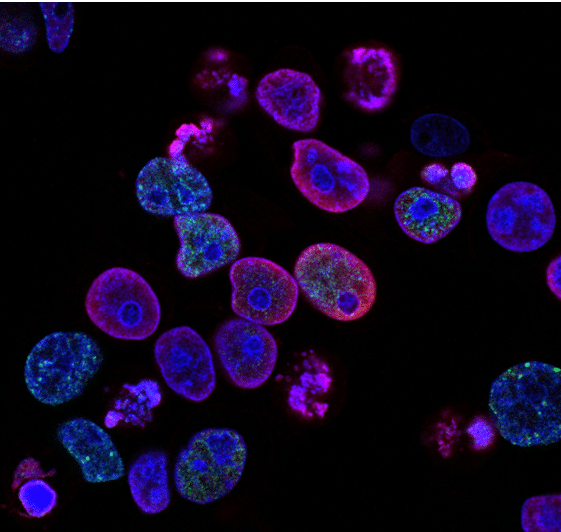Systematic racism contributes to health inequities and partially manifests as daily episodes of discrimination. It is a threat to mental and physical health. There are links between negative health outcomes, such as rheumatoid arthritis, autoimmune inflammatory disease and chronic stress which may be induced by racism, says a recent article published on CNBC. What...
All animals carry a plethora of bacteria, viruses, archaea and fungi, and their internal microbial ecosystems provide them with nutrients, immunity, and defense against pathogens. Microbiome sequencing is becoming cheaper and more advanced from day to day. This means that microbiome sequencing of animals, even rare animals, which was once thought to be...
Microbial Rewilding in the Gut Microbiomes of Captive Ring-Tailed Lemurs (Lemur catta) in Madagascar
19 January 2023by Barış Özdinç
The gut microbiome is critical to good animal health and environmental factors are influential on the microbiome. Environmental variations such as altered ecosystems, degraded habitats, deforestation or captivity may have negative impacts on host-microbiome communities, and cripple host fitness, making it a vital issue for ecology research. In this blog, we will explore the...
Dietary Polyphenols in Relation to Gut Microbiota Composition in Saudi Arabian Females
19 January 2023by Barış Özdinç
Obesity prevalence has been skyrocketing since the 1970s globally, with the Eastern Mediterranean region being no exception. For instance, obesity is prevalent in 20% of Saudi Arabian adults, with an elevated prevalence in females. The increase of obesity rates in adult females of reproductive age is particularly worrying, given new evidence suggesting links between...
The gut microbiome hosts many different microorganisms. There are more bacteria in the human gut than the stars in the Milky Way… From bacteria, to viruses and eukaryotes, these microbes are key players in the etiology of a number of diseases, such as cancer, depression, and diabetes. These microbes may even influence the host...
Mode of Delivery Alters the Infant Gut Microbiome and Antibody Response to Vaccinations
3 January 2023by Barış Özdinç
Microbiota contributes to an array of benefits for their human hosts; digestion, vitamin production, homeostasis, immunity and the list goes on. The microbiome is first established upon exit from the sterile womb, and the mode of delivery can shape colonisation and dynamics of a newborn’s gut community. A recent article from BBC highlights gut microbiome...
Why is Metagenomics Important?
21 December 2022by Manoj Dadlani
Metagenomics is the study of genetic material recovered directly from environmental samples. It is a relatively new field that has been made possible by advances in molecular biology and sequencing technology. But why is metagenomics important? Well, understanding the genes of all organisms is important for several reasons.
In metagenomics, biological specimens are sometimes collected from host tissue that contains a high ratio of host to bacterial DNA. When shotgun metagenomics sequencing data are generated for these specimens, they normally contain a large fraction of host reads compared to microbial reads. Analyzing microbiome data with a high host ratio of reads can lead...
Updated Functional Workflow on the CosmosID-HUB
13 December 2022by Dana Walsh
A complete analysis of the microbiome should combine taxonomic profiling with functional characterization to discover the full potential of an entire community of microorganisms. However, research teams often require specialized training and extensive computational infrastructure to establish an in-house suite of tools for processing shotgun metagenomic data – and even with the right know-how, the...
Australia to Become the First Country to Approve Fecal Transplant to Restore Gut Health
15 November 2022by Barış Özdinç
The gut microbiome has clear implications for health and disease. Recent evidence of this comes from a US FDA vote for approval of the microbiome-based drug RBX2660, created by Rebiotix Inc, A Ferring Company, to treat potentially deadly bacterial infections with Clostridium difficile (Cdiff). Cdiff is a common gut bacteria that may cause severe diarrhea...



